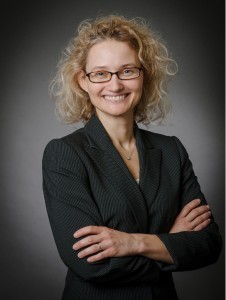
Special Education 
 For more from Greer Gurland, read
How to Advocate Successfully for Your Child:
What Every Parent Should Know About Special Education Law.
For more from Greer Gurland, read
How to Advocate Successfully for Your Child:
What Every Parent Should Know About Special Education Law.
Top Five Secrets About Extended School Year (ESY)
Extended School Year (ESY) may be in your child’s IEP program, or it may never have come up. But for all parents of children with learning differences or other special needs, ESY should be on your radar—now that summer is near, but also year round so that your can plan. When parents or schools refer to ESY, they usually mean public school programs that run for a certain number of weeks during July and August, for certain children with IEPs. What should every parent know in order to obtain ESY when it’s called for? For starters, these five secrets that I often find myself letting parents know about.Secret #1: ESY is not only for children who are failing or who didn’t meet their stated IEP goals.
Whether ESY is warranted needs to be determined by the IEP team on an individual basis. It is often provided for students to prevent regression — meaning, when the IEP team concludes that what a student will forget over the summer months would take too long to recoup in September in the absence of reinforcement of skills over the summer. This criterion is often referred to as “recoupment/regression analysis.”Secret #2: Recoupment/regression analysis is not the only way to qualify for ESY.
The law is clear that the individual determination must be made based on detailed information relating to the child that is not limited to how much regression might occur. IEP teams are to consider whether the child is in the midst of acquiring a new skill, whether summer services are required to take advantage of a window of opportunity for learning, and the ability of parents to provide programming. In short, what the child needs in order to receive a free, appropriate public education in September should be up for discussion.Secret #3: ESY programs are not one-size-fits-all.
They are also not limited to the program that might currently run in your district. While many districts offer six- to eight-week programs that often run daily, 9 a.m. to 1 p.m., plus related services, it is important that you ask what a program offered to your child consists of. For some children, an academic program is not as advantageous as alternatives for the summer — through the school or otherwise — that allow for greater practice of social skills. Some parents elect to accept related services for their children, such as occupational therapy or speech therapy, but choose not to enroll their children in a longer program. Many parents do not consider this option.Secret #4: ESY need not be in school.
The law is clear that schools can provide services in other locations, such as community recreation programs or Boys and Girls Clubs. It makes sense to think flexibly about what your child needs and where the IEP team can provide services. Thinking beyond the program in place or a traditional program can result in effective programming that is economical for the school as well. In addition to in-district programs and services provided in community settings, private out-of-district summer programs may be necessary to meet students’ needs — whether they be social, emotional, academic, or behavioral. Private schools that serve children with disabilities from September to June often have summer programs for their students. They may also accept students just for the summer. Such programs may be a way for a school to meet a child’s summer programming needs and test the fit of a placement for the future.Secret #5: Parents need to pave the way by collecting data year-round.
Parents should be collecting data that evidences their child’s progress throughout the year, but also at key points, in order to bring the necessary information to the team to make the best decision about summer programming. What was the child’s reading level before last summer? After the summer? Did the child’s behavior regress significantly over short vacations or breaks? Parents’ ability to collect this data will make a difference in helping construct a proper program. They should also meet with the child’s teachers and therapists and other providers, both in and out of school, one on one, in order to gain feedback about the child’s progress. Parents should obtain written recommendations, if possible, about summer programming needs. As always, parents know their children best. Ask yourself: Does your child need a continuation of routines over the summer, or does she need a break from the pressure of the school year? The answer may lie in between, and summer can combine a number of different types of learning experiences.



